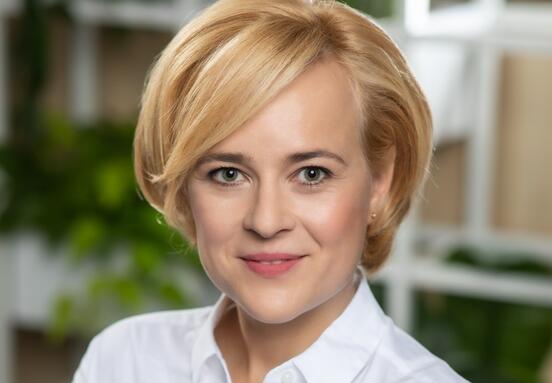- Flexibility has become the word of the year in the real estate market, which is particularly beneficial for serviced office operators. Do you agree with that?
- Flexibility has become the key decision indicator when choosing the office after pandemic. There are three main reasons for that, I consider. Firstly, it is about freedom to choose where to work. The trend “work from home” that many people used to do during Covid will stay as part of our lifestyle, finding the life balance between work, family and leisure. Secondly, it has become extremely important expand or downgrade the office in line with the team growth, which is happening unpredictably sometimes or with a short notice when opportunities come. And it is hard to do with classic office. Thirdly, the most important, it is risks decrease. Definitely service office operators do benefit of the trend but at the same time we are taking the risks of long term lease agreements, huge capex investments and any unexpected force majeure those may arise.
- By taking care of the day-to-day operations for the tenants, the serviced office operator allows them to concentrate solely on their actual work. But this obviously comes at a price: what are the costs for someone who wants to rent a serviced office?
- The all inclusive price for serviced office is not much higher in comparison to conventional/classic office. It may seem to be higher but once the calculation done properly with all the "ingredients" those go together when running the office and business, e.g. fit out, furniture, maintenance, utilities, administrative and secretarial support cost (salaries) as well as training related costs, cleaning, internet&telecom costs, insurances, property taxes and many others, it appears to be obvious that the price is fair and the time-savings and risk decrease are really worth it. Time invested into setting things up costs much money, as well as money put in the capex would make more money if invested in business. The price starts from 220 euro per person per month excluding VAT depending on the location, office type and contract length.
- How do you see the office market evolving in 2022? How will the market change in the post-Covid period? What are the most significant trends?
- We see that flex is getting more and more in demand. Even large corporate who seem to used to their own space in past do choose flex office which gives them flexibility to choose any location out of 4000 over the world. Saying that it has become crucially important for investors and developers of business centres and business parks to plan the infrastructure wisely. Flex office and coworking is a must today as a part of business centre infrastructure. This would make the building more valuable. IWG is open for cooperation with the landlords as we could operate the flex space effectively based on our successful experience worldwide. We also see that the demand for flex and coworking is rising in smaller cities and towns which are connected to the people way of life change and absolute ability to work remotely and meet the business goals.
- The vacancy rate is around 10%, but there are relatively many sub rentals. At the same time many new office buildings coming as new offer. Do you think that the market is still healthy?
- Yes, we consider it is relatively a healthy market. We experience rather high demand for offices. New developments are a good sign that market is growing. Especially for Budapest we experience lack of supply of new quality buildings. We see that only 15% of workers are still support “work from home” trend. Most of the people have to come back to the offices after pandemic. This means the demand will grow.
Irodakereso.info







